
Specimens of the Iceland spar variety of calcite are popular items in rock shops and at gem-and-mineral shows. Looking like miniature ice cubes, these colorless, transparent, cleaved rhombohedrons sell for only a few dollars each. But the commonplaceness of these little rhombohedrons belies a fascinating history that has a profound impact on science and technology.
Calcite (calcium carbonate, CaCO3) crystallizes in the trigonal system and is slightly denser than quartz. Pure calcite is colorless, but impurities impart a range of soft colors. With its weak ionic bonding, calcite is rather soft (Mohs 3.0) and cleaves easily into rhombohedrons.
Birefringence is calcite's most notable property. This ability to polarize light and refract it in two slightly different directions creates the double images seen when objects are viewed through Iceland spar crystals.
SUN STONE
Centuries before the magnetic compass was introduced to Europe, Viking mariners were demonstrating an uncanny ability to navigate the northern seas, even when cloudiness and fog obscured the sun or when the sun was below the horizon.
Icelandic monastery texts dating to 1250 mention a sólarsteinn (sun stone) that the Vikings used to determine the sun's position without direct solar sightings. When a sun stone was held against the eye while scanning the horizon, polarized light cast two shadowy images upon the retina. The horizontal deflection at which their darkness equalized accurately indicated the position of the unseen sun.
This story is from the April 2023 edition of Rock&Gem Magazine.
Start your 7-day Magzter GOLD free trial to access thousands of curated premium stories, and 9,000+ magazines and newspapers.
Already a subscriber ? Sign In
This story is from the April 2023 edition of Rock&Gem Magazine.
Start your 7-day Magzter GOLD free trial to access thousands of curated premium stories, and 9,000+ magazines and newspapers.
Already a subscriber? Sign In
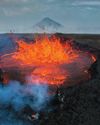
THE BRIGHT SIDE OF VOLCANIC ROCK
As a mineral resource, volcanic rock is decidedly short on glamour.
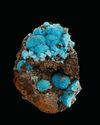
The Other Copper Minerals
12 Lesser-known Collectible Species

MINERAL COLLECTING -AND ROCK & GEM
Evolving Together FOR 54 YEARS
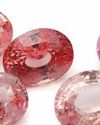
Gemstone Trends
A Look Back at 2024 & What to Expect in 2025
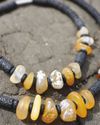
How to Make a GEM BEAD NECKLACE
No Lapidary Experience Needed!
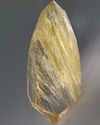
Framing Nature's Art
Faceting Rutilated Quartz for Beginners
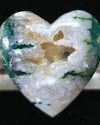
BEDAZZLED BLUE SEAM AGATE
More than several centuries ago, mining was the profession most often seen as befitting of men.
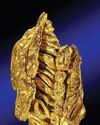
ROCK & GEM FIELD GUIDE:
Spinel is a captivating gemstone with a rich history of being mistaken for gems like ruby and sapphire.
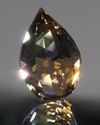
SNAKE SCALE DROP 1.5:1
This Faceting Focus is revisiting the briolette gemstone design because of its popularity with independent and hobby gemstone faceters.
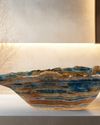
STONE CHIC
How Earth-Inspired Decor Brings Comfort to our Home